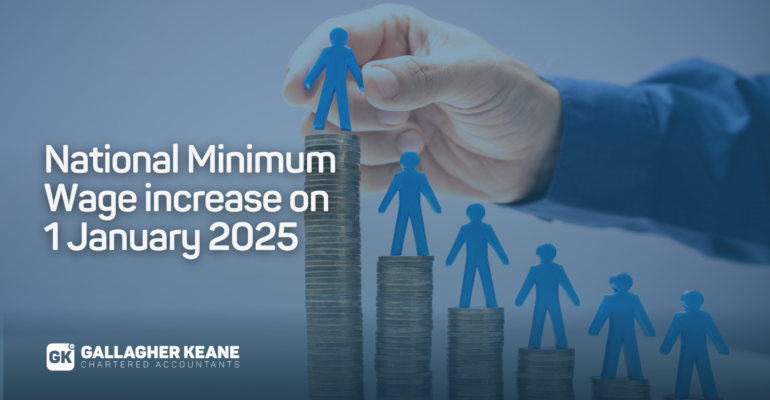National Minimum Wage increase on 1 January 2025

National Minimum Wage increase on 1 January 2025
From 1 January 2025, the national minimum wage in Ireland has increased by 80 cents, bringing the hourly rate to €13.50. This increase, introduced under the National Minimum Wage Act 2000, aims to improve wages for many workers across the country. However, certain groups, such as younger employees and those in specific employment arrangements, may receive different rates.
Who is Entitled to the New Minimum Wage?
Most employees are legally entitled to the national minimum wage, but there are exceptions. If you are under 20, your wage will be based on a reduced rate:
- 20 years and over: €13.50 (100%)
- 19 years: €12.15 (90%)
- 18 years: €10.80 (80%)
- Under 18: €9.45 (70%)
These rates ensure a structured increase as younger workers gain experience in the workforce.
What Counts as Pay?
When calculating your hourly rate, the following are included:
- Your basic pay
- Shift premiums
- Fees, bonuses, and commissions
- Service charges processed through payroll
- Zero hours payments
Additionally, if your employer provides food or accommodation, these benefits are factored into the calculation:
- Board (meals): €1.21 per hour
- Lodging: €31.89 per week or €4.55 per day
However, certain payments do not count toward the minimum wage, such as overtime premiums, tips paid directly to you, or pension contributions.
How is Your Hourly Rate Calculated?
Your hourly pay is determined by dividing your gross pay (before tax and deductions) by the total number of hours worked. This includes:
- Overtime and travel time (if part of your job)
- Approved training during normal working hours
Your employer selects a pay reference period (weekly, fortnightly, or monthly) to calculate your pay. This period must be outlined in your statement of employment conditions.
Living Wage in 2026
The government plans to phase in a living wage by 2026, which will replace the minimum wage. The living wage will be set at 60% of the median wage. Until then, the national minimum wage will continue to rise gradually.
For further details, visit https://www.citizensinformation.ie/
Reach out to us today:
Reach out to Gallagher Keane for expert support in payroll, tax compliance, and financial outsourcing: [email protected]


